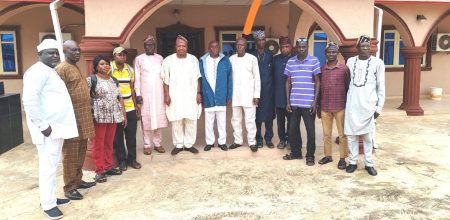The Academic Staff Union of Universities (ASUU), University of Maiduguri chapter, has vehemently opposed the Federal Government’s decision to rename the institution after the late former President Muhammadu Buhari. This decision, announced in July 2025, sparked immediate outrage and condemnation from the university community, culminating in an emergency congress held by ASUU-UNIMAID on July 24, 2025. The congress, attended by ASUU members, student representatives, and other key stakeholders, unanimously rejected the renaming, deeming it a blatant disregard for university autonomy, a disruption of established academic traditions, and an affront to the institution’s collective heritage and identity.
The union’s primary contention is that the renaming process was fundamentally flawed, lacking meaningful consultation with the university community, alumni, relevant stakeholders, and the broader public. This perceived lack of transparency and stakeholder engagement underscores a concerning disregard for due process and participatory governance. The university, having existed for 50 years under its original name, has cultivated a distinct identity and a rich history that the renaming threatens to erase. The union argues that such a significant decision should not be imposed arbitrarily but rather arrived at through a consultative process that respects the institution’s autonomy and acknowledges the sentiments of its stakeholders.
ASUU-UNIMAID’s rejection of the name change is rooted in several key principles. Firstly, the union upholds the principle of university autonomy, asserting that institutions of higher learning should be free from political interference and undue influence. Renaming the university after a political figure, particularly one as divisive as former President Buhari, is seen as a violation of this autonomy and an attempt to politicize the academic environment. Secondly, the union emphasizes the importance of preserving the university’s established identity and traditions. The name “University of Maiduguri” represents not just a label but a legacy built over decades, a shared history and sense of belonging within the academic community. Changing the name, the union argues, would erase this history and disrupt the continuity of the institution’s identity.
Beyond these principled objections, ASUU-UNIMAID also raises concerns about the potential practical implications of the renaming. The union anticipates that such a significant change could lead to confusion and administrative complexities, especially concerning legal documents, academic records, and international collaborations. The rebranding process itself would also entail substantial costs that could be better utilized for academic purposes, such as improving research facilities, upgrading infrastructure, or enhancing student support services. In a context of limited resources, diverting funds towards a renaming initiative that lacks broad support within the university community is seen as fiscally irresponsible.
Following the emergency congress, ASUU-UNIMAID outlined a multi-pronged strategy to challenge the renaming decision. The union’s executive committee was mandated to pursue all available legal avenues to overturn the decision and ensure the preservation of the university’s original name. This legal challenge will likely focus on the procedural irregularities surrounding the renaming process, arguing that the lack of adequate consultation and stakeholder engagement renders the decision invalid. Simultaneously, the union called upon other ASUU branches, zones, and the national body to engage with the National Assembly, civil society organizations, students, and other relevant actors to mobilize opposition to the name change. This broad-based mobilization aims to create pressure on the government to reconsider its decision and respect the university’s autonomy.
In essence, ASUU-UNIMAID’s opposition to the renaming represents a broader defense of academic freedom and institutional autonomy. The union’s actions underscore the importance of upholding democratic principles within the academic sphere, ensuring that decisions affecting universities are made through transparent and participatory processes that respect the voices of all stakeholders. The renaming controversy highlights the ongoing tension between government authority and university autonomy, a tension that requires careful negotiation to maintain the integrity and independence of higher education institutions. The union’s resolute stance serves as a reminder that universities are not merely extensions of the government but rather independent spaces for critical inquiry and intellectual pursuit, and their autonomy must be protected to safeguard their vital role in society.














